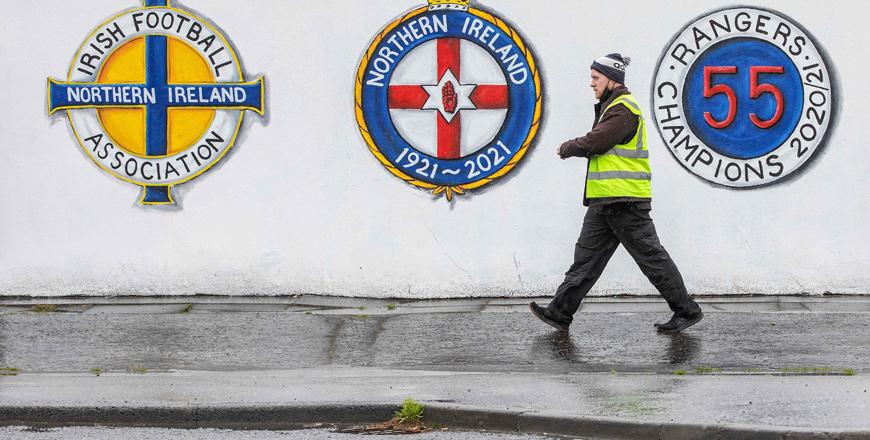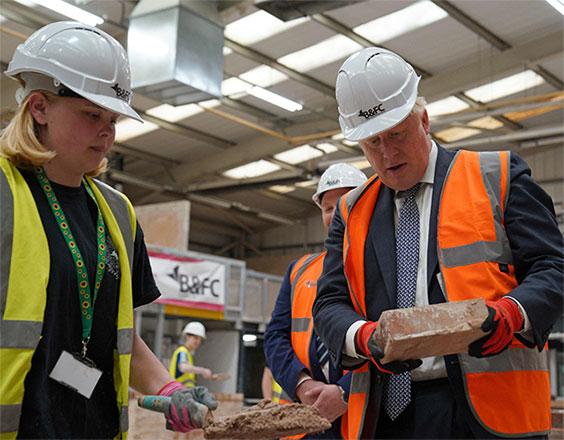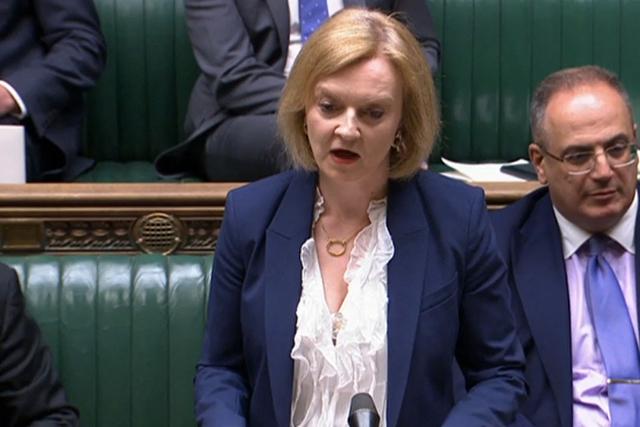You are here
Northern Ireland riots signal dark new chapter for Brexit
Apr 08,2021 - Last updated at Apr 08,2021

In this file photo taken on April 03, a police officer walks behind a police vehicle with flames leaping up the rear after violence broke out in Newtownabbey, north of Belfast, in Northern Ireland (AFP photo)
By Joe Stenson
Agence France-Presse
DUBLIN — A week of rioting in Northern Ireland is the first evidence Brexit turbulence may be boiling into unrest in the British province, where post-EU rules are stoking fury among pro-UK sections.
The unrest emanates from the unionist community — which believes in Northern Ireland's status as part of the United Kingdom — and where some feel a new post-Brexit "protocol" is an existential threat.
Last week violence flared in the city of Londonderry, before spreading to the capital Belfast and outlying areas over Easter weekend and into Monday.
Small bands of masked males set cars alight and tossed petrol bombs and masonry at police, injuring 41 officers.
Police formed ranks with riot shields and armoured vehicles to retake the streets, arresting teens and young adults.
“There is no doubt that Brexit and the advent of the protocol has significantly damaged the balance of power,” Ulster University politics professor Duncan Morrow told AFP.
“This has been brewing for months.”
Border troubles
Northern Ireland was the site of “The Troubles” — a 30-year sectarian conflict that killed 3,500 people.
Unionist paramilitaries, British security forces and armed nationalists — seeking to unite the territory with the Republic of Ireland — waged battle until a landmark peace deal in 1998.
The accord let unionists and nationalists coexist by blurring the status of the region, dissolving border checks with fellow European Union member Ireland.
Britain’s shock 2016 referendum decision to leave the bloc threatened to upset that arrangement, by requiring the return of the border checks.
Eventually a special “protocol” was agreed for Northern Ireland, shifting checks away from the land border to Northern Irish ports, on goods arriving from Britain.
It came into effect when a Brexit transition period ended at the start of 2021.
‘Rewarding violence’
The new checks — effectively keeping Northern Ireland in the EU’s customs union and single market — have already disrupted trade with mainland Britain.
But for many unionists the deeper issue is a sense of betrayal.
Regional justice minister Naomi Long, of the centrist Alliance Party, said British Prime Minister Boris Johnson’s government “promised people unfettered access, which is not the case”.
“They denied the existence of borders, even as those borders were being erected,” she told the BBC on Wednesday.
Johnson’s spokesman on Tuesday declined to comment on the factors driving the unrest, but offered sympathies for the injured officers and backed police appeals for calm.
Belfast Telegraph crime correspondent Allison Morris wrote that rioters have little interest in the complexities of UK-EU trade, “but they do know they’re angry”.
“They do understand that they have been betrayed by the very British government that their parents, grandparents and great-grandparents were slavishly loyal to,” she wrote.
Some also believe that Brexit negotiators bowed to nationalists who tacitly threatened a bloody response to any resumption of checks on the Irish border.
“That has created a powder-keg precedent whereby many young loyalists look at the protocol and conclude that violence is rewarded,” unionist activist Jamie Bryson told the News Letter paper.
Earlier this year, protocol checks were suspended at Belfast and Larne ports when graffiti appeared threatening staff.
Graffiti has also appeared in unionist areas depicting the gun crosshairs symbol and the phrase “all bets are off”.
Broader issues
But Brexit is only one plank in a wider crisis within unionism in Northern Ireland.
In 2017 unionists lost their historic majority at the regional assembly at Stormont. Then the 2019 UK election returned more nationalist than unionist MPs for the region for the first time.
Meanwhile there is evidence of a demographic shift towards nationalists, feeding a sense of unionists as a besieged minority.
Brexit has also stoked intensified debate over a united Ireland in the Republic and on the international stage, with the new US administration of President Joe Biden warning Britain against any Brexit-related backsliding on the 1998 peace deal.
Riots also flared after authorities decided not to prosecute leaders of nationalist party Sinn Fein for attending the funeral last year of a former paramilitary leader in apparent breach of COVID restrictions.
The restrictions are now gradually being lifted, and police have been scoring successes against paramilitaries operating organised crime.
“Some of this is a push back against the police on that basis,” explained Long, the justice minister.
Professor Morrow warned that given the complexities at play, “it remains very hard to see where it goes except for mounting frustration and anger”.
Related Articles
BELFAST — Northern Ireland marked its centenary on Monday under coronavirus restrictions, simmering post-Brexit unrest and a leadership cris
LONDON — Britain said on Thursday it was readying new legislation to rewrite its Brexit commitments on Northern Ireland but denied it was br
LONDON — British lawmakers were set on Monday to take their first vote on a government bill to overhaul post-Brexit trade arrangements in No















